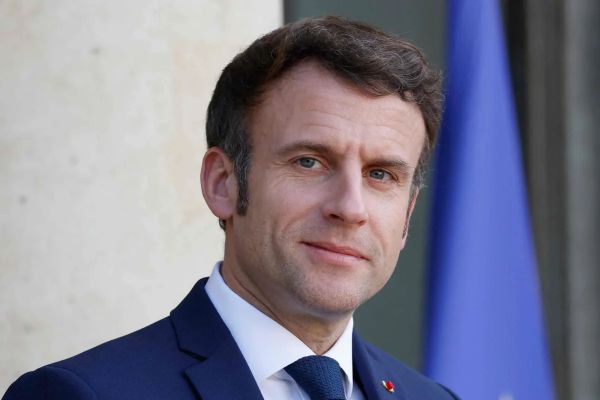French President Emmanuel Macron has provided a bold defense of his plan to forcibly raise the retirement age, despite widespread protests and two votes of no confidence.
He stated,
“This reform is neither a luxury nor a pleasure; it is a necessity.”
The government’s use of constitutional authority to force reforms through without a vote in the National Assembly has emboldened protesters.
On Thursday, the ninth round of strikes and national protests will occur.
Six nights of demonstrations with hundreds of arrests have occurred in a number of places.
As a result of blockades at oil refineries, 13 percent of gas stations have run out of fuel, and nearly half of the pumps in the Bouches-du-Rhône region of the south are dry.
The protests have also put a shadow over the upcoming visit of King Charles to France. Sandrine Rousseau, a member of the Green Party, demanded the trip be canceled “Is it truly essential to receive Charles III at Versailles?
Something is occurring within French society; therefore, it is essential to communicate with the emerging society.”
Under pressure to defuse tensions, Mr. Macron made his first public comments on the rising pensions dispute in an interview aired on two of the most prominent French television stations at midday on Wednesday.
The French president stated that protestors had the right to take to the streets and that their displeasure had been taken into consideration, but that it was unacceptable for them to resort to violence without any guidelines.
“Do you believe that I love enacting this reform? No, “he said. In order to implement the increase in the pension age by the end of 2023, he stated he had a duty not to ignore the matter despite its unpopularity.
The French pension system is a pay-as-you-go system in which employees pay for retirees. Mr. Macron noted that there were 10 million French retirees when he began his career, compared to 17 million today.
The more we wait, the greater [the deficit] will worsen. He stated that it was time to go forward, renewing engagement with the unions and any political groups willing to do so.
He highlighted his goals for the remainder of his presidency: immigration law reform, construction of 200 new military police barracks, schools, health, and the environment.
President Macron’s decision to employ the 49:3 clause to increase the retirement age from 62 to 64 and extend pension contributions is regarded as his greatest political risk since he confronted the yellow vest demonstrators during his first term.
Yet, at that time he led a government with a strong majority in the legislature, whereas currently, he leads a minority government and the retirement reform is extremely unpopular.
Bruno Cautrès, a political commentator at Sciences Po university, told RTL Radio that after six years in government, the president lacked the same “agility” as when he first took office and that his latest words would not be well received by the unions.
Union leaders along with the far-right National Rally and far-left France voted against the bill. Unbowed parties have united in opposition to Prime Minister Élisabeth Borne’s decision to drive the law through.
Philippe Martinez, the chairman of the far-left CGT union, stated that the president’s interview, in which he claimed his changes were the only choice, had made millions of protestors look foolish.
The moderate CFDT’s Laurent Berger accused Mr. Macron of rewriting history and lying to conceal his inability to win a majority in parliament.
As part of Thursday’s day of protest, union leaders predicted that up to half of primary school teachers would go on strike, but demonstrations continued on Wednesday, especially outside the southern port of Marseille-Fos.
Marine Le Pen of National Rally stated that she would not “have anything to do with putting out the fire” because the president alone held the keys to a political crisis he had caused.
During his television appearance, Mr. Macron reaffirmed his support for his ailing prime minister, stating,
“She has my trust to head this government team.”
He allegedly informed representatives of his party at the Elysée Palace prior to his appearance that there would be no change in course. He ruled out a cabinet reshuffle, the dissolution of parliament, and any other drastic action.
Mr. Macron told his colleagues that he had no remorse about driving through the revisions because “respecting our institutions is always a good thing.”
According to him and the prime minister, the measures have undergone 175 hours of parliamentary deliberation. Mr. Macron noted that several parties had supported the change during its passage through parliament, but then sponsored a vote of no confidence that narrowly failed.
Before Monday’s vote in the House of Representatives, the government realized that it lacked sufficient support, notably among conservative Republicans.
During a television interview, President Macron was asked if he had any regrets. If he did, he said that if he did, he would be that he failed to convince people of the necessity of the reform.
However, he added,
“I don’t live with regret, I live with will, tenacity, and engagement because I love our country and people.”
Also Read: Is Deadliest Catch’s Josh Harris Wed? Family And Wealth





